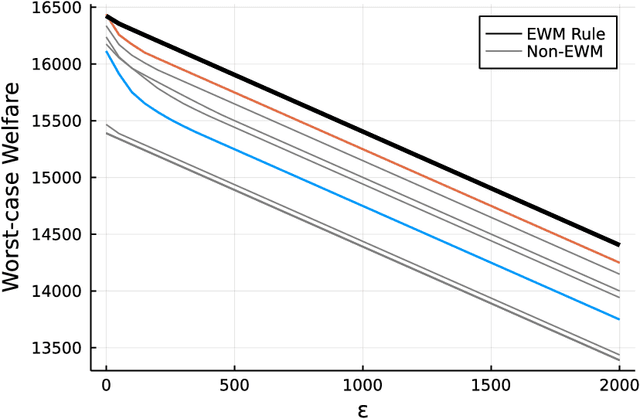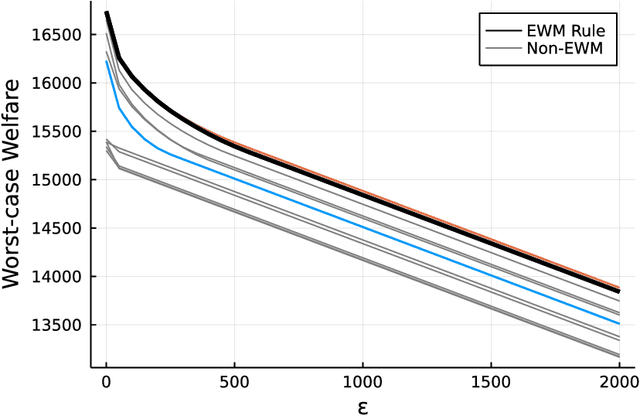Christopher Adjaho
Externally Valid Treatment Choice
May 11, 2022

Abstract:We consider the problem of learning treatment (or policy) rules that are externally valid in the sense that they have welfare guarantees in target populations that are similar to, but possibly different from, the experimental population. We allow for shifts in both the distribution of potential outcomes and covariates between the experimental and target populations. This paper makes two main contributions. First, we provide a formal sense in which policies that maximize social welfare in the experimental population remain optimal for the "worst-case" social welfare when the distribution of potential outcomes (but not covariates) shifts. Hence, policy learning methods that have good regret guarantees in the experimental population, such as empirical welfare maximization, are externally valid with respect to a class of shifts in potential outcomes. Second, we develop methods for policy learning that are robust to shifts in the joint distribution of potential outcomes and covariates. Our methods may be used with experimental or observational data.
 Add to Chrome
Add to Chrome Add to Firefox
Add to Firefox Add to Edge
Add to Edge